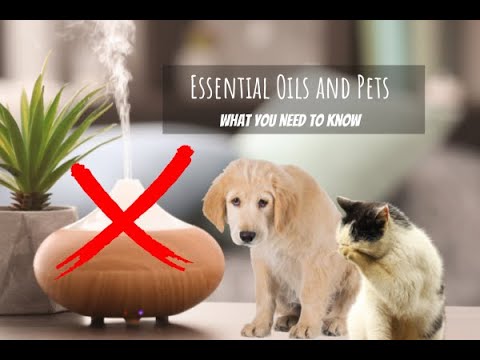If you’re a pet owner, you may be interested in using essential oils to keep your furry friend healthy and happy. They work wonders on you after a full-on day, yeah?
However, it’s important to know that almost all essential oils can be dangerous to your pets – in fact, some are downright deadly!

What are Essential Oils?
Essential oils are manufactured from highly concentrated plant or chemical compounds, and are popular in aromatherapy, alternative medicine and air-fresheners. There are also hundreds of types, each with their own unique physical properties. Essential can be harmful to your pet if not used correctly. Exposure to essential oils can occur via ingestion (either by consuming the oils directly or through grooming themselves), skin exposure or inhalation.
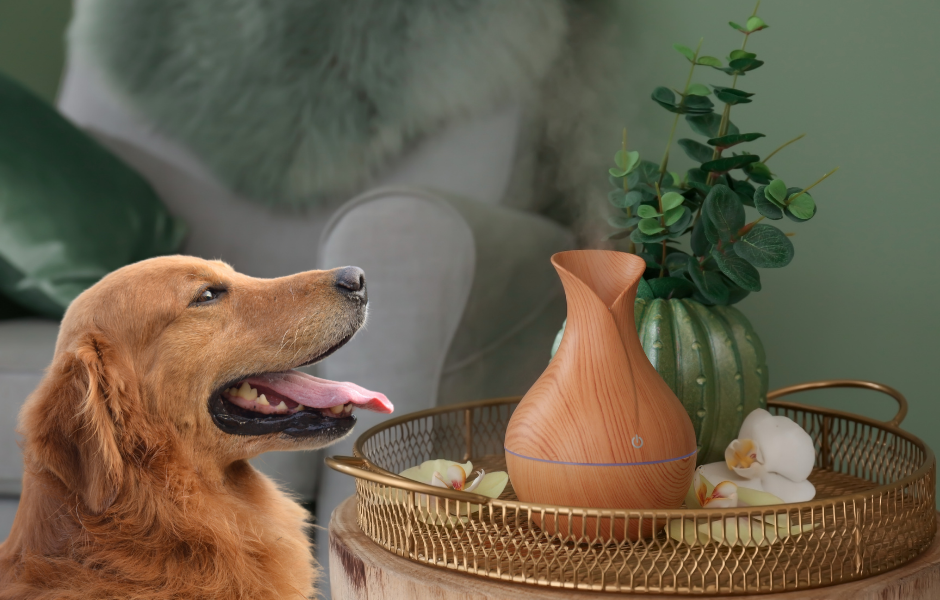
People, unfortunately, believe the use of these “natural” essential oils helps improve their personal and their pet’s health and happiness. The perceived health benefits of essential oils has convinced some pet parents to try a holistic, “natural” approach to help with a wide variety of medical conditions, from anxiety and skin problems to flea and tick prevention.
Natural flea and tick treatments that use essential oils, to put it plainly, just don’t work. With a lack of data supporting the efficacy of these products, pet parents may be putting their pets at major risk of parasite related diseases.
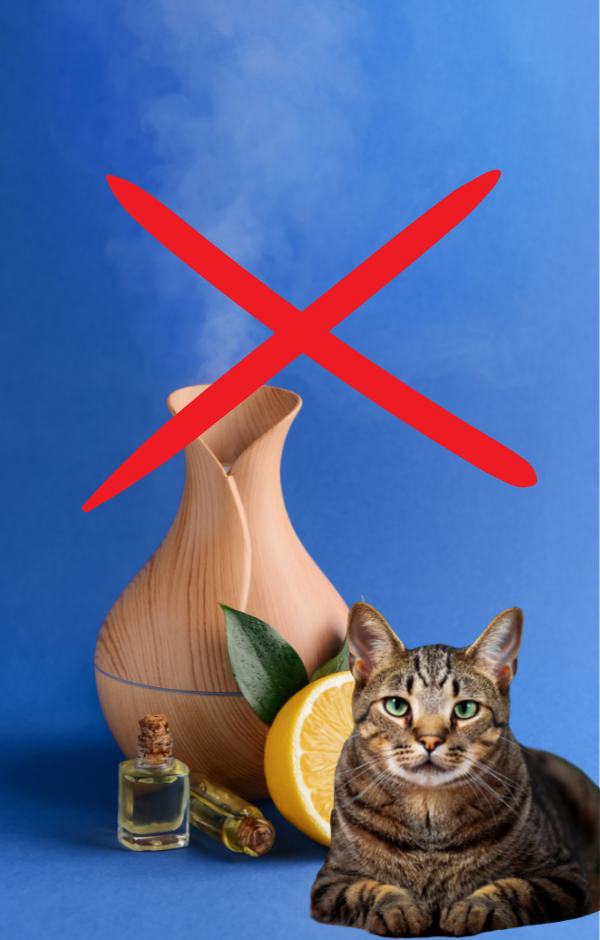
You may not also know, that while your essential oil diffuser makes your home smell amazing, Inhaling diffused oils is known to cause negative respiratory effects in both humans as well as pets, especially if used in a small space and/or for an extended period of time. In fact ,for your pet, they are possibly one of the most dangerous items you can have in your home and can be likened to a miniature volcano of death…
Not to mention if your pet has existing respiratory conditions such as asthma or bronchitis, they are going to be at greater risk of developing respiratory distress. Even more so if they are cats! In clinic, I have personally had numerous admissions to emergency that were purely essential oil related.
Cats and Essential Oils
Felines are missing some very specific enzymes that provide the ability to eliminate various compounds (a process called “gluconuridation), found in essential oils. These compounds occur naturally and are highly concentrated in these oils, leaving the liver and lungs the most vulnerable to organ failure.
Oils that are particularly toxic to cats include:


Dogs and Essential Oils
For dogs, we can say same as to the dangers of essential oils as they also lack some these Glucuronidation enzymes too. Placing drops of nice-smelling oils, such as lavender, on your dog’s bed may help calm them (it probably won’t), or it may just cause further stress (it almost definitely will). Oils and new stimulus can lead to changes in a dog’s behaviour, adverse nervous effects and respiratory problems, especially for brachiocephalic (flat nosed) dogs such as Pugs, Frenchies, Staffys, boxers, etc.
Oils that are particularly toxic to dogs include:

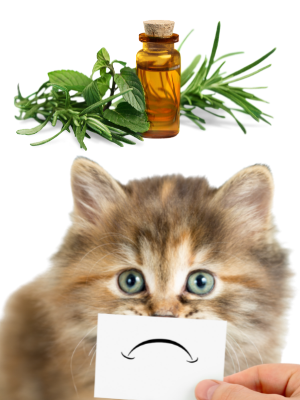
So what can we deduce from these two lists? When it comes to essential oils just don’t put any on, around or near your pets. Simple. No one carries this list around with them (myself included) that’s for sure and this is in no way a full list of everything that can affect your pets.
So as a blanket response, I just use one rule, “don’t put any form of essential oil on or near your pet.”
What should I look out for?
The signs of essential oil poisoning will depend on the type of oil, the quantity, and the way your pet is exposed. A good rule of thumb as a pet owner is to stay alert if you see any changes of behaviour in your animal.
There are several common signs your pet may display if they have may have been poisoned, these include:
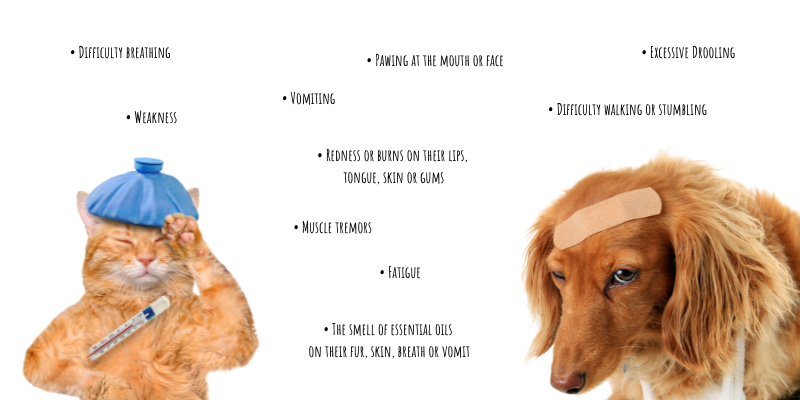
In conclusion, just don’t! But if you MUST use essential oils, only do so with a vet’s approval. Our view on essential oils and animals is that they’re likely to do more harm than good, so better to be safe than sorry. To avoid poisoning, keep these oils out of reach of your pets. Store them in secure containers that your dog or cat cannot get to. And, again, ask your vet before you use ANY kind of oil in any capacity.
Team FleaMail.
Don’t have time to read? Listen to Dr. Evan Shaw talk on this blog!

